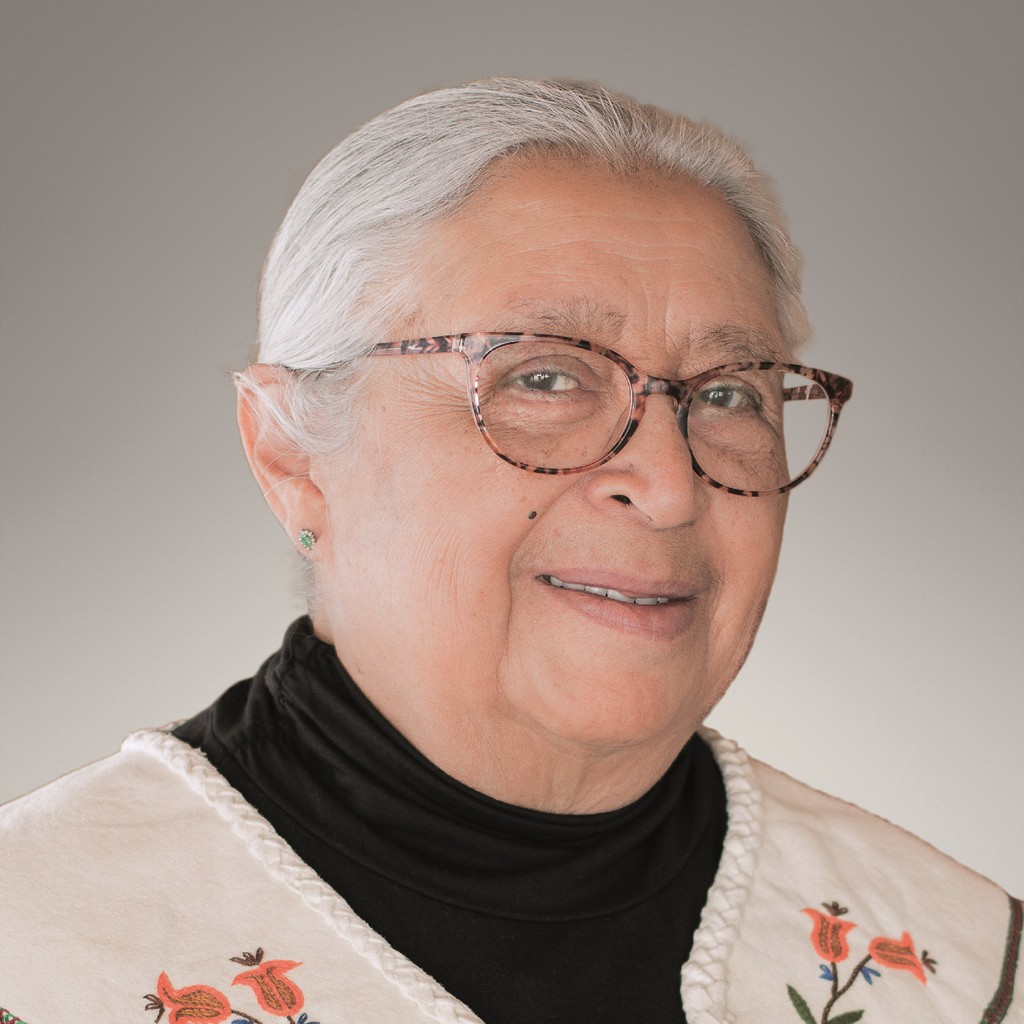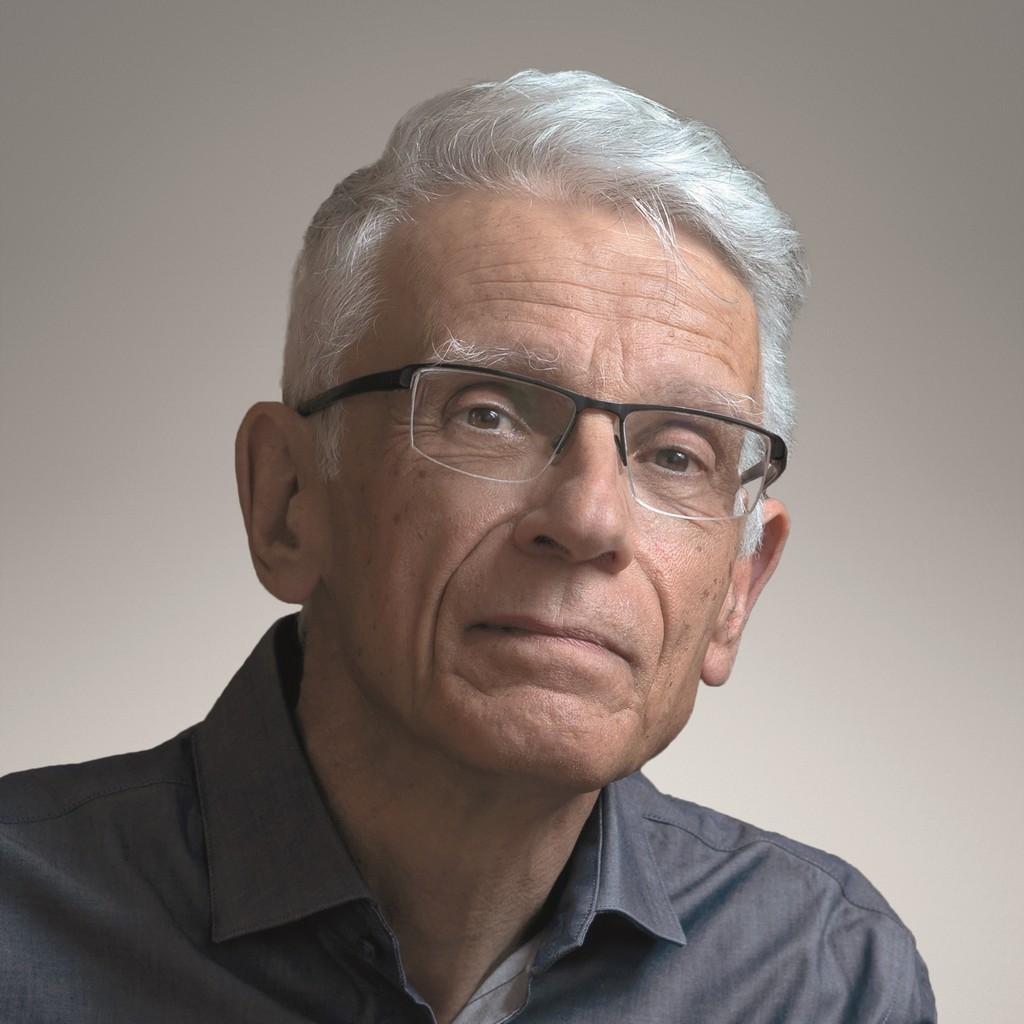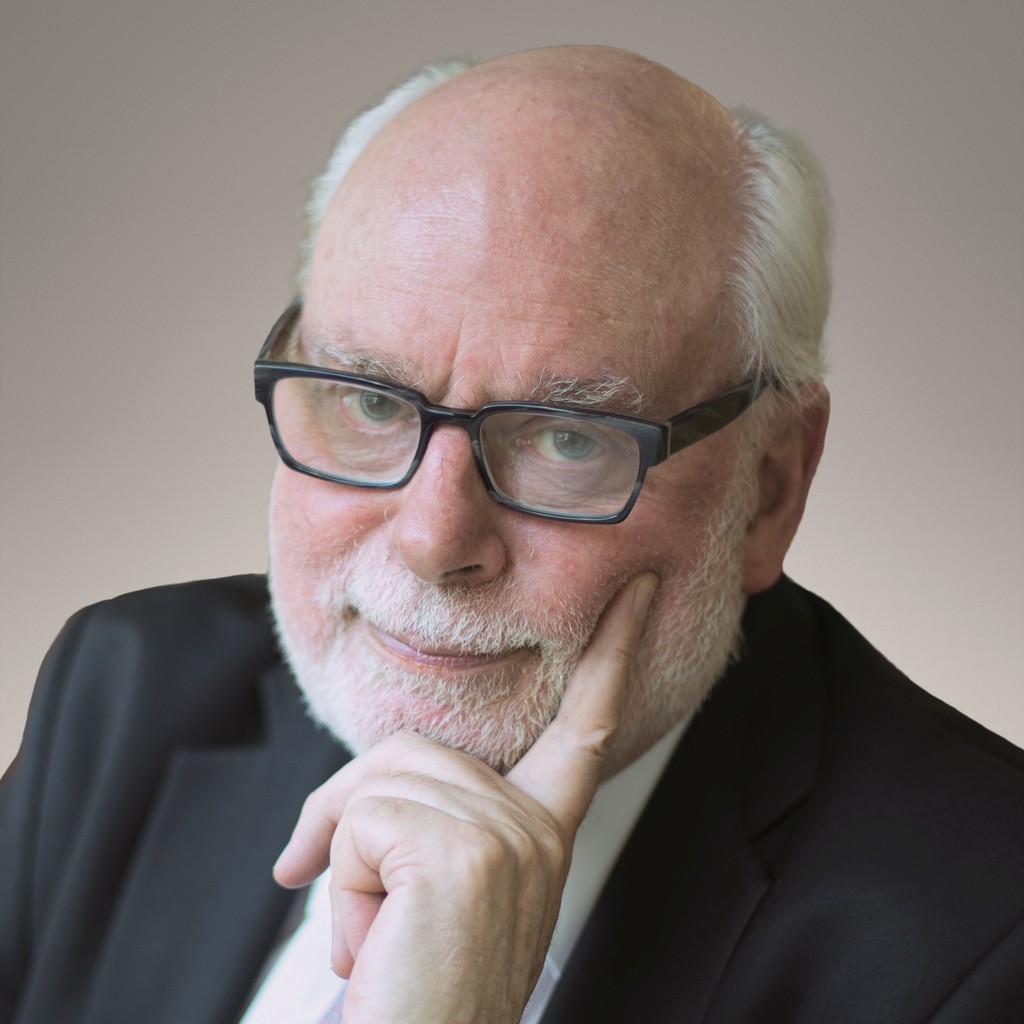Honorary doctorates
This high honour recognizes individuals who do remarkable and exemplary things in the University’s fields of endeavour. Recipients may come from within academia and outside it in Québec, across Canada, or elsewhere in the world.
2022

Bibiane Courtois
Nurse and Activist
Honorary Doctorate in Nursing
Learn more
In 1967, a young woman from Pekuakamiulnuatsh First Nation began her career at Hôpital Sainte-Élisabeth, a psychiatric institution in Roberval. As the hospital’s first lay nurse, Bibiane Courtois quickly became a driving force behind the adoption of a more humane approach to psychiatric care. That humanity led her to become a remarkable nurse and a great advocate for women’s rights and First Peoples’ culture.
Her compassion for people led her to develop a program in the 1980s to improve care for the elderly based on Virginia Henderson’s nursing model. Keenly aware of the cultural dimension of care, she also helped develop approaches adapted to First Nations and implemented a number of preventive community health programs in Indigenous settings. During her 31 years of service, Courtois was recognized for her expertise in psychiatric and cardiovascular care as well as community health. In 1998, she received the prestigious Insigne du mérite Award from Ordre des infirmières et infirmiers du Québec for her ongoing commitment to delivering outstanding care.
In addition to her professional accomplishments, Courtois was a social activist. In the late 1960s, contrary to a discriminatory clause in the Indian Act, she refused to relinquish her Indian status following her marriage to a non-Indian. Elected president of Québec Native Women in 1983, she was instrumental in having the clause abolished in 1985. As a result, she was the first Indigenous woman appointed to Commission des droits de la personne and Conseil du statut de la femme du Québec.
Throughout her life, Courtois strove to improve the health and living conditions of others. When she became director of Musée amérindien de Mashteuiatsh in the 2000s, that same cause was behind her work to repatriate cultural objects to her community. For Courtois, safeguarding culture is another way of fostering the health of a people.
Photo: Martin Gaudreault, artiste photographe professionnel SAC.

Bernard Émond
Anthropologist, Filmmaker, and Author
Honorary Doctorate in Anthropology
Learn more
Bernard Émond has spent his life successfully fusing his studies in anthropology with his artistic work. Known for his eight critically acclaimed feature films, which have received numerous awards and been selected by major international festivals, he has also made his mark with his literary writings and social criticism.
In the 1970s, Bernard Émond directed his first documentaries for Vidéographe and Groupe Intervention Vidéo, of which he was a founding member. At the same time, he wrote a master's thesis on ethnographic cinema, then taught anthropology at colleges and as a lecturer at Université de Montréal. Drawn to Inuit culture, he worked in the far north starting in the 1980s to train video production teams for Taqramiut Nipingat in Nunavik and later for the Inuit Broadcasting Corporation in Nunavut. His time in the north sharpened his perception of the fragility of cultures, which would become a common theme in his work. The 1980s also saw him publish thought pieces in Recherches amérindiennes au Québec and Le temps fou, among others.
Starting in the 1990s, filmmaking became his main focus. He made five documentaries and then shot his first feature film, The Woman Who Drinks, nominated for five Jutra Awards and five Genie Awards. This was followed by 8:17 p.m. Darling Street and The Novena, which established him as a leading filmmaker. He also wrote the screenplay for The Necessities of Life, which won the Jutra and Genie Awards for best screenplay in 2009. In both his film and literary works, which include essays, short stories, novels, and children's books, the anthropologist takes a critical look at the contemporary world, focusing on the role of image, the loss of what guides us, and the breakdown of social ties.
Photo: Hélène Bouffard

Camille Limoges
Professor of the History of Science and Senior Civil Servant
Honorary Doctorate in Philosophy
Learn more
Camille Limoges began his doctoral studies at the Sorbonne’s Institut d’histoire des sciences et des techniques in 1964 under the direction of Georges Canguilhem, one of the great historians and philosophers of biology. Following a groundbreaking thesis in which he used Darwin’s manuscripts to map out the genesis of the theory of natural selection, he became a professor of the history of biology at Johns Hopkins University and Université de Montréal. He later became a visiting professor at Harvard University and the University of California. Already an influential thinker in the early 1980s, Camille Limoges put his academic work on hold to help shape Québec’s policies on science and technology development. From then on, his efforts to expand and transmit knowledge would go hand in hand with significant civic contributions.
Limoges was one of the instigators of Québec’s first scientific development policy and was appointed deputy minister of the first Ministère de la Science et de la Technologie, which he organized, before serving as deputy minister of Ministère de l’Enseignement Supérieur et de la Science from 1984 to 1986. After going back to teaching and research, this time at UQAM, he founded Centre interuniversitaire de recherche sur la science et la technologie (CIRST) in 1993. After returning to public service in 1997, he served as president of Conseil de la science et de la technologie du Québec for two years before being appointed deputy minister of Ministère de la Recherche, de la Science et de la Technologie and coordinating the development of Québec’s new research and innovation policy.
Camille Limoges has received numerous honours, including the prestigious Armand-Frappier Award, one of the Prix du Québec. Since his retirement in 2002, he has served as a consultant to numerous scientific organizations and focused on a critical edition of Georges Canguilhem’s complete works. He plans to donate his collection of over 2,000 books related to Canguilhem to Université Laval.

Sir Fraser Stoddart
Board of Trustees Professor of Chemistry, Northwestern University
Honorary doctorate in chemistry
Learn more
A pioneer in molecular and supramolecular chemistry, Sir Fraser Stoddart is known for his work on mechanically interlocked molecules, including rotaxanes, which led to the design and synthesis of artificial molecular machines. For this major innovation, he received the 2016 Nobel Prize in Chemistry along with researchers Jean-Pierre Sauvage and Ben Feringa. His research has ushered chemistry into a new era where molecular systems approximate the functioning of living molecules.
Sir Fraser Stoddart received a PhD in chemistry from the University of Edinburgh in 1966. He left his native Scotland in 1967 to pursue postdoctoral studies at Queen's University in Ontario, and went on to become a leading researcher in the field of chemistry beyond the molecule at the Universities of Sheffield and Birmingham in the United Kingdom. In 1997, Stoddart joined the faculty of the University of California, Los Angeles, where he held the Saul Winstein Chair in Organic Chemistry and the Fred Kavli Chair in NanoSystems Sciences. Since 2007, he has been a Board of Trustees Professor of Chemistry at Northwestern University in Evanston, Illinois.
Named a Knight Bachelor by the Queen in 2006, Sir Fraser Stoddart has received dozens of honours and distinctions throughout his career. He has published in the field's most prestigious journals, and his more than 1,250 scientific articles have been cited more than 125,000 times. This luminary with an h-index of 149 has given more than 1,000 lectures around the world and has worked with close to 500 doctoral students and postdoctoral fellows.
Professor Stoddart is known as a great humanitarian and a fierce advocate for equity, diversity, and inclusion. He supports a number of causes, including the United Nations Foundation's Girl Up campaign, which aims to build skills and leadership among girls, and the American Chemical Society's Project SEED Program, which allows young people from disadvantaged backgrounds to spend a few weeks in university research laboratories with recognized mentors.
Photo: Jim Prisching
Honorary doctorates for years prior to 2018 are currently available in French only.